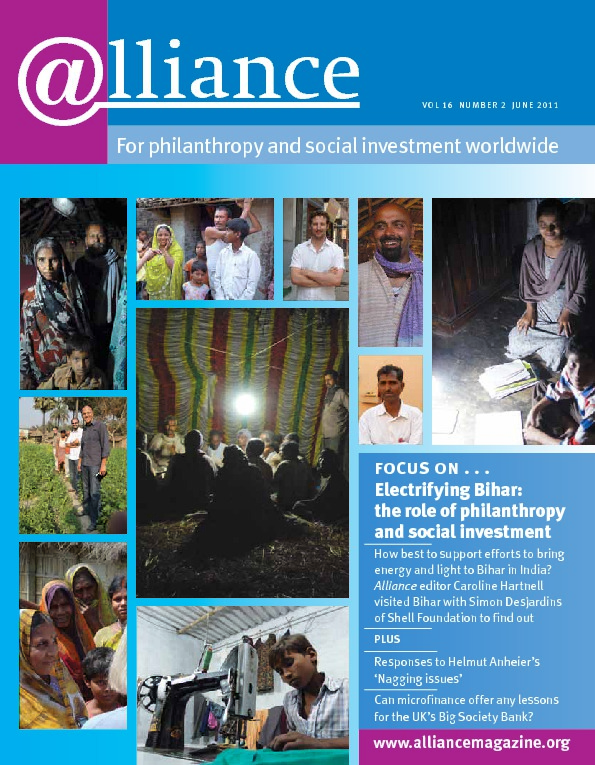On 24 March, behind closed doors in New Delhi, a select group of some of India’s richest families met Bill and Melinda Gates and Warren Buffett to discuss philanthropy. It is encouraging to those involved in philanthropy in India to see these families taking the meeting seriously and this level of wealth and influence coming together to discuss such pressing issues.
‘It’s fair experience that as you get people together to talk about philanthropy, they will hear why other people have committed and agreed to what they’re doing. It’ll encourage them to do more,’ Bill Gates told a news conference ahead of his meeting with the Indian billionaires.
Views from those in the meeting were extremely positive. Gates and Buffett found it very informative and praised the guests for the candour with which they expressed their views. The invitees found the exchange inspiring and both sides learned from each other.
Warren Buffett, speaking at the news conference after the meeting, declared himself ‘almost certain’ that philanthropy will increase in India over the next decade. ‘The people in that room drew strength and conviction from hearing others talk,’ he said.
This historic meeting occupied most Indian front pages. Both Buffett and Gates continued adamant that they were not here to tell Indians to give but instead to learn from Indian philanthropists and to help support the billionaires who are focusing on philanthropy. However, the Indian press disagreed. A large section asked why Americans were telling Indians how to use their hard-earned money. Wealth creation at these levels is still a new phenomenon in India and Indians cannot be expected to part with their funds so quickly. Did it not take western culture generations of wealth creation to even begin thinking about individual giving?
While some of these viewpoints may hold merit, it is time that India started to recognize that giving by Indians for Indians will benefit no one more than Indians. This has nothing to do with a western philosophy, differing tax laws or imperialism. It has to do with the responsibility that individuals need to take for real inclusive growth to occur. This is imperative if India is to become a true superpower and global leader.
According to a study by Bain management consultants,[1] charitable donations in India make up about 0.6 per cent of the country’s gross national product, well below the 2.2 per cent in the US. India has traditionally received large contributions from international donors such as the Bill & Melinda Gates Foundation, USAID and Oxfam. That being said, the quantum of international funding coming into India is on the decline. In fact, in the UK there have been questions asked as to why India, a country with three times the number of billionaires in the UK, should be receiving £280 million a year when the UK is cutting social programmes and services for its own citizens. The UK government’s response is to stress India’s continuing massive need, with one third of the world’s poor residing in India – more than the whole of Sub-Saharan Africa – and 50 per cent of Indian children suffering from malnutrition.
Billionaire giving in India has increased over the past year with notable commitments from Shiv Nadar, Azim Premji (the software czar committing $2 billion to education projects) and, most recently, G M Rao from GMR, who has pledged US$340 million to philanthropic projects. But India still has a large number of billionaires and an estimated 127,000 millionaires who have the ability and responsibility to give but are currently not doing so at a significant level. Their combined net worth could move India out of poverty.
So what can Gates and Buffett teach India? These men are the second and third richest men in the world and between them have pledged more money to philanthropy than anyone else in history. They have vast experience and philanthropists both in India and around the world can learn from them to become more strategic in their giving. They respect the complexities of philanthropy and understand that quick fixes do not exist. They are extremely focused and results-oriented but provide organizations with the flexibility and time needed to create lasting change. While they have already committed over $1 billion to India, they are still humble enough to realize that they lack the resources and expertise to do this job alone. Therefore they were in India to ask them for help. Help needed to help India.
1 Arpan Sheth (March 2010) An Overview of Philanthropy in India, available at http://www.bain.com/bainweb/publications/publications_detail.asp?id=27656&menu_url=publications_results.asp
Deval Sanghavi is CEO of Dasra and the Indian Philanthropy Forum. Email deval@dasra.org or alison@dasra.org





Comments (0)